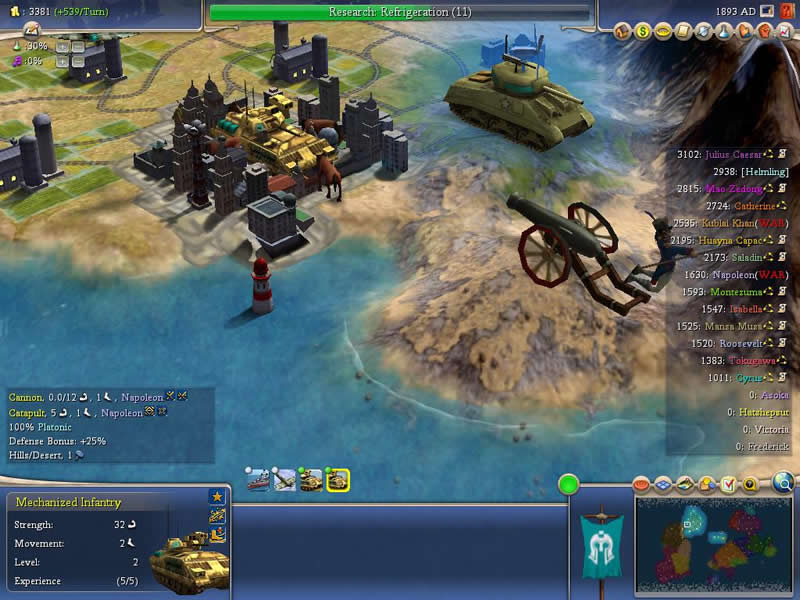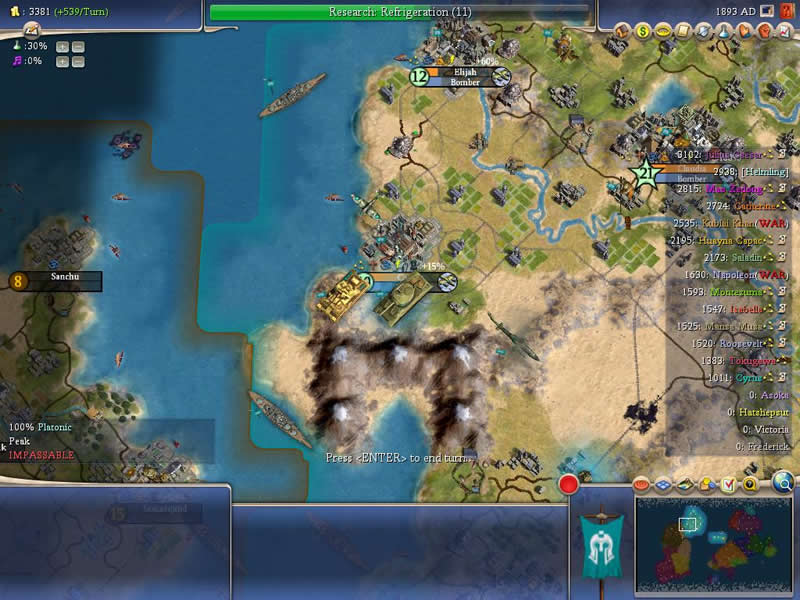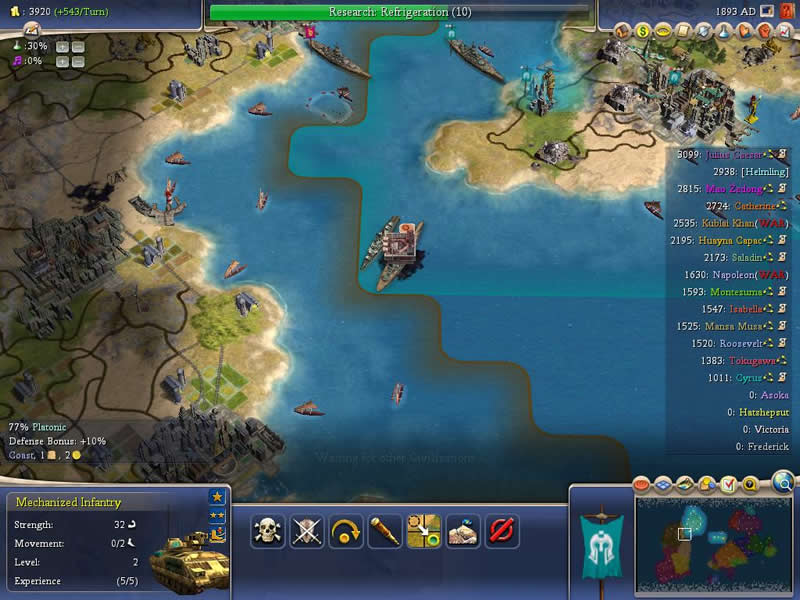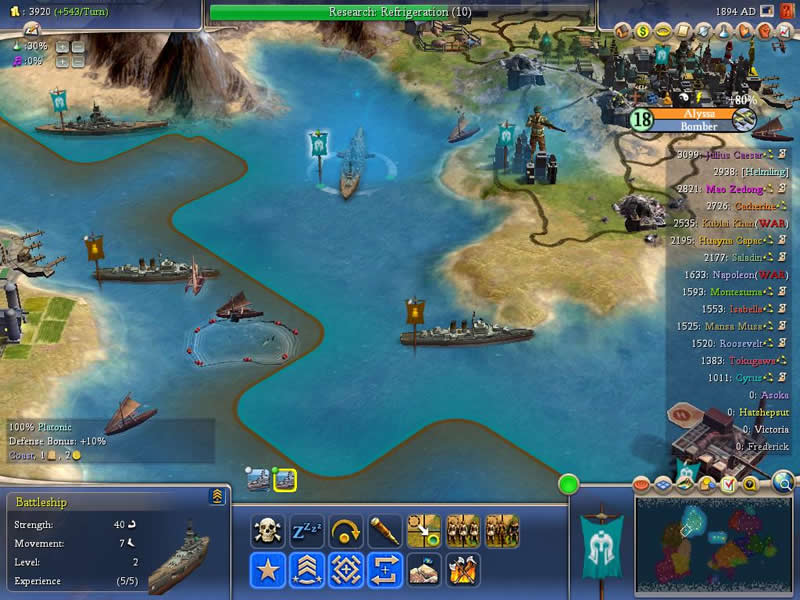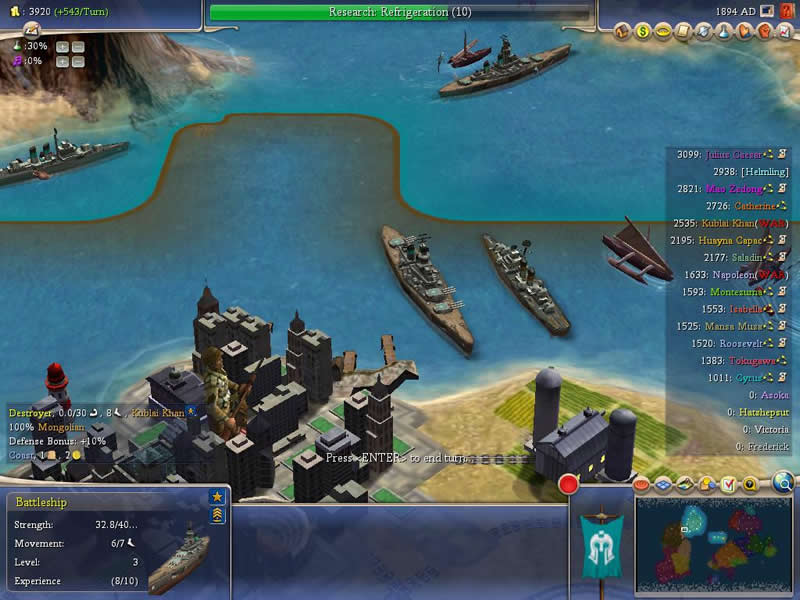"Fire!" the General called out.
His cavalry divisions had been decimated and the riflemen were routed. He and his men had been left desperately trying to defend a hill with cannons alone. They had withdrawn to the most inaccessible reaches of the hillsto crags and peaks that the cannons could be dragged to, but which the Philosopher King tanks could not scale.
Fire! he commanded again and shells went flying toward the city beyond, falling in clouds of black smoke on the evacuated outskirts.
Sir! one of his men approached, breathless. Enemy forces are moving along the northern spur.
They cant reach us up here, he boasted. Their over-reliance on their technology is their weakness. Even their infantry does not move without their vehicles.
The breathless officer shook his head. Sir, with respect. How is this a winning strategy? Every day grows colder. We do not have the supplies to last out a winter
Reinforcements will come.
Again, with respect general, how is that possible? The Philosopher King fleet is mighty. We snuck by them once, but they wont allow that again. Most of the fleet that brought us here was sunk the first week after our landing. We dont know if any ships escaped. The general turned to him now, growing furious, but the man continued. I do not believe General Montcleure would have continued under these
General Montcleure is dead, and I am in command.
This is futile.
You will take your post and hold the line against any
The General noticed something moving quickly through the air from the city. He raised his telescope. They were aircraft, but not planes. They clung tightly to the groundand there were many of them.
Incoming! the General cried out. The other officer and all the men about them sprung to action trying to cover the cannons with foliage and other camouflage. This had become their best hope against air attack, to hide and let the planes pass by finding little or nothing.
This time, though, the aircraft did not swoop past them. The helicopter gunships rose slowly over the hills as the General watched from under cover.
Dammit! He scrambled up from the ground just as two of the helicopters opened fire on their position. Rounds thrashed through their camouflage and ripped one of the cannons to pieces, sending hot metal flying. Men wailed in agony as the shrapnel caught them in their backs.
Fire! the General shouted again, and men scurried out into the light and took aim with their rifles against the hovering helicopters. Their bullets ricocheted harmlessly off the gunships armor, and the massive warbirds spunas if their rotor blades were attached to a string dangling from the heavensand ripped through the men with their chain guns.
The General dashed back to one of the cannons and helped it crew ready it to fire.
We cant turn it, sir! one of the men yelled in a panic.
Get back! he ordered. He pulled a grenade and let it roll under the wheel of the cannon and then he dove behind some rocks. The explosion blasted the cannon mount and left the weapon lying on its side, its barrel propped up by the rocks. The men returned to it and loaded the barrel in a rush. Wait for it! he said as they watched one of the helicopters moving along the hill top, spraying fire at the other men. Now! he shouted as the thing started to drift toward their line of fire. The men pounded in the shell and it shot out, catching the main body of the gunship and hurling it back over the hill where they heard it crash in a thunderous explosion.
The French soldiers cheered as the black smoke rose up from the lip of the hilltop.
The Generals satisfaction shone through and he rose from the ground to gloat over the kill.
Then, from behind him, he felt a rush of air.
He turned and there was another gunship, hovering close enough that he could see the pilots maliceless eyes behind its controls.
Beside him, his men raised their arms and came out into the open. He glanced over his shoulder to see Philosopher King infantry rounding up the rest of the surrendering French forces.
The General looked back to the Philosopher King pilot. He and his machine were so close
The General reached for his side arm, but before he could raise his arm again the chaingun on the helicopter had expelled a dozen rounds in his direction.
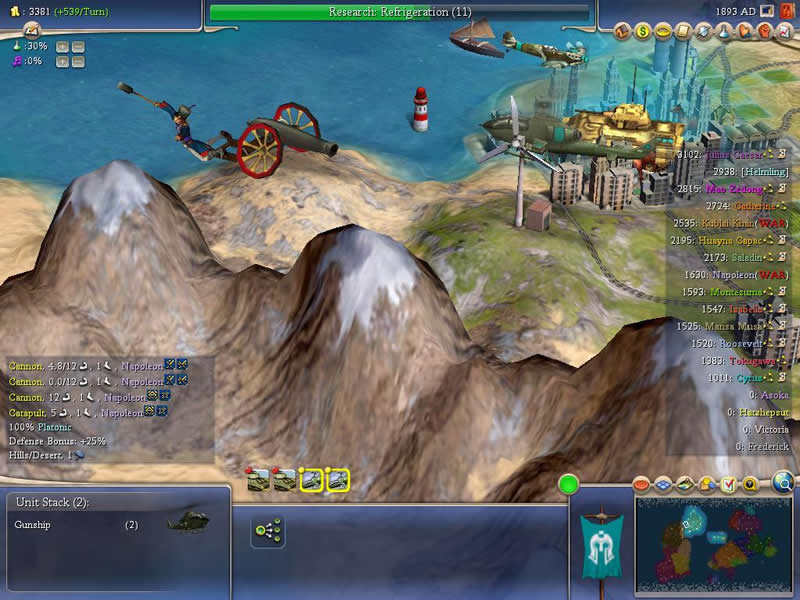
His cavalry divisions had been decimated and the riflemen were routed. He and his men had been left desperately trying to defend a hill with cannons alone. They had withdrawn to the most inaccessible reaches of the hillsto crags and peaks that the cannons could be dragged to, but which the Philosopher King tanks could not scale.
Fire! he commanded again and shells went flying toward the city beyond, falling in clouds of black smoke on the evacuated outskirts.
Sir! one of his men approached, breathless. Enemy forces are moving along the northern spur.
They cant reach us up here, he boasted. Their over-reliance on their technology is their weakness. Even their infantry does not move without their vehicles.
The breathless officer shook his head. Sir, with respect. How is this a winning strategy? Every day grows colder. We do not have the supplies to last out a winter
Reinforcements will come.
Again, with respect general, how is that possible? The Philosopher King fleet is mighty. We snuck by them once, but they wont allow that again. Most of the fleet that brought us here was sunk the first week after our landing. We dont know if any ships escaped. The general turned to him now, growing furious, but the man continued. I do not believe General Montcleure would have continued under these
General Montcleure is dead, and I am in command.
This is futile.
You will take your post and hold the line against any
The General noticed something moving quickly through the air from the city. He raised his telescope. They were aircraft, but not planes. They clung tightly to the groundand there were many of them.
Incoming! the General cried out. The other officer and all the men about them sprung to action trying to cover the cannons with foliage and other camouflage. This had become their best hope against air attack, to hide and let the planes pass by finding little or nothing.
This time, though, the aircraft did not swoop past them. The helicopter gunships rose slowly over the hills as the General watched from under cover.
Dammit! He scrambled up from the ground just as two of the helicopters opened fire on their position. Rounds thrashed through their camouflage and ripped one of the cannons to pieces, sending hot metal flying. Men wailed in agony as the shrapnel caught them in their backs.
Fire! the General shouted again, and men scurried out into the light and took aim with their rifles against the hovering helicopters. Their bullets ricocheted harmlessly off the gunships armor, and the massive warbirds spunas if their rotor blades were attached to a string dangling from the heavensand ripped through the men with their chain guns.
The General dashed back to one of the cannons and helped it crew ready it to fire.
We cant turn it, sir! one of the men yelled in a panic.
Get back! he ordered. He pulled a grenade and let it roll under the wheel of the cannon and then he dove behind some rocks. The explosion blasted the cannon mount and left the weapon lying on its side, its barrel propped up by the rocks. The men returned to it and loaded the barrel in a rush. Wait for it! he said as they watched one of the helicopters moving along the hill top, spraying fire at the other men. Now! he shouted as the thing started to drift toward their line of fire. The men pounded in the shell and it shot out, catching the main body of the gunship and hurling it back over the hill where they heard it crash in a thunderous explosion.
The French soldiers cheered as the black smoke rose up from the lip of the hilltop.
The Generals satisfaction shone through and he rose from the ground to gloat over the kill.
Then, from behind him, he felt a rush of air.
He turned and there was another gunship, hovering close enough that he could see the pilots maliceless eyes behind its controls.
Beside him, his men raised their arms and came out into the open. He glanced over his shoulder to see Philosopher King infantry rounding up the rest of the surrendering French forces.
The General looked back to the Philosopher King pilot. He and his machine were so close
The General reached for his side arm, but before he could raise his arm again the chaingun on the helicopter had expelled a dozen rounds in his direction.


